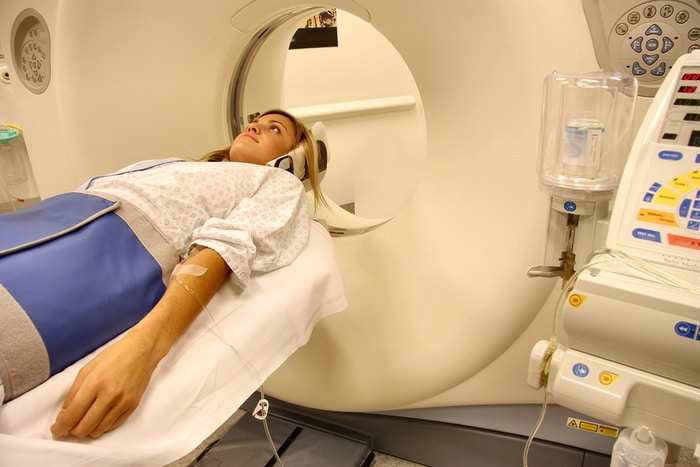People with cancer can consider treatment of their disease with radiation therapy. According to a health website, chances of recovering from cancer using this therapy (for five years) was nearly 30%. Before we proceed, let’s understand what radiation therapy means.

In this therapy, cancerous cells are exposed to high energy beams. These beams may be X-rays, gamma rays, protons, etc. When you undergo radiation therapy, the cancerous cells die out, and this prevents the spread of cancer to other parts of the human body. Please note that non-cancerous cells are less likely to be affected by this radiation.
Radiation therapy can cure many forms of cancer. At least 60% of all cancer cases can be treated with this method. Some of the cancers that can be treated with radiation therapy are – skin and neck, throat, larynx, breasts, brain, colorectal, lung, bone, leukemia, uterine ad ovarian. You can click here to get more information.
There are several benefits of undergoing radiotherapy; some of them are:
- The killing of a large number of cancer cells in a cancerous area- This means that if diagnosed early, radiotherapy can kill a large number of these cells in a small tumor.
- If there is a microscopic disease at the edge of a tumor, it can also be cured by this therapy. This disease may otherwise not be treated generally because it won’t be visible to the surgeon.
- Using radiation therapy, a tumor can be shrunk to a smaller size, and the patient can be stabilized progressed from a non-resectable status into a more respectable status.
- Radiation therapy is safe and painless. The high beam of energy can be directed at the affected body part without making the patient uncomfortable.
- Radiation therapy also does not require the removal of organs like breasts, larynx, or the gastrointestinal tract. This way, the quality of life of the patient is not adversely affected.
- There is also a possibility of the patient’s immune system becoming stronger as a result of this therapy. This means that your body’s self-healing system can battle cancer in the future and prevent its recurrence.
There are other benefits, too, for going for radiation therapy.
One, this form of treatment is relatively inexpensive. You don’t have to be admitted to a hospital for this treatment. You can continue getting this treatment for as long as ten years at a minimal cost. Radiation therapy has been proven to reduce pain in some forms of advanced cancers. For example, 75% of patients reported the removal of pain in their bones after undergoing radiation therapy.
Another benefit is the reduced chances of recurrence of cancer. Radiation therapy nearly completely removes cancerous cells, so there is very little chance of recurrence of this disease. Lastly, continued advances in radiation therapy have made this treatment, not just affordable, but also quite advanced and effective. In the coming years, more and more Australians and New Zealanders will benefit from radiation therapy.
Please note that radiation therapy differs from person to person. The factors that affect your type and extent of radiation therapy are:
- The location, size, and type of cancer.
- Localization; has cancer spread to other parts of the body?
- What does the patient want? Does he want relief from the symptoms or a total cure of cancer?
- If radiation therapy is being used alone or in combination with other forms of treatment such as chemotherapy, surgery, medicines, etc.
- Your treatment via radiation therapy would also depend upon your health and other personal indicators.
